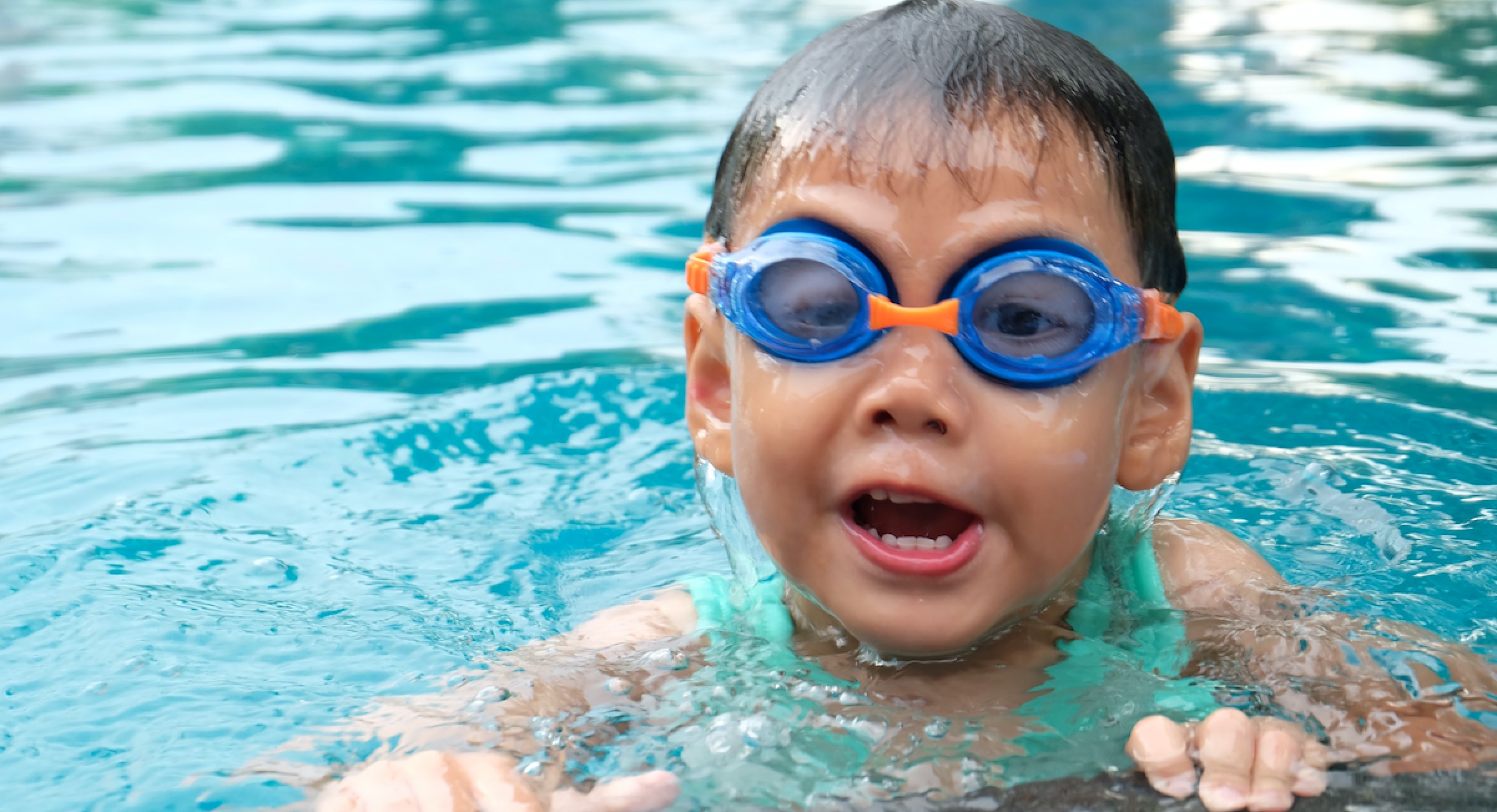The languid season of summer is underway, beckoning with promises of late-night bonfires at the beach, ephemeral romances, and lounging by the pool with a cold bevvy at hand.
But some parents may wonder whether it is safe to let their kids jump back into the water, especially with their friends. Infections from the COVID-19 virus continue to rise and the majority of young people in the state remain unvaccinated.
Vaccinations have just begun for children ages 6-months to under 5-years-old. Children ages 5-11 have been eligible since November 2021, but in California, just over a third of children in that age group are fully vaccinated, according to data from the California Department of Public Health.
In the U.S., over 12 million children have become ill with COVID-19. Over 122,000 children have been hospitalized with COVID-19 since the beginning of the pandemic and over 1,400 have died. COVID -19 vaccines remain the safest way to prevent hospitalization and death from COVID-19 for everyone 6 months and older, and summer get togethers make this even more important.
In this FAQ, Dr. Dali Fan, Health Sciences Clinical Professor at the UC Davis Medical Center, addresses parental concerns about summertime and how to keep children safe when enjoying public pools.
Would you recommend using public pools at this time for young children, especially those who remain unvaccinated?
The Centers for Disease Control and Prevention state that there is no evidence that the COVID-19 virus can be spread to people through swimming pools. Proper operation and maintenance (including disinfection with chlorine or bromine) of these facilities should inactivate the virus in the water.
If owners and operators of public pools follow proper guidance and work with local health officials, these facilities would be considered safe for vaccinated children.
Unvaccinated kids should continue to wear masks indoors and in crowded outdoor situations where social distancing isn’t possible. This includes swimming in public pools, which is considered a moderate to higher risk activity. Physical exertion and yelling can easily spread germ droplets into the air, so swimming in a public pool, even outdoors, is a higher risk when there’s a crowd.
You can reduce your child’s risk by going to the pool at off-peak hours and making sure your child can keep their distance from others, in and out of the water.
What about taking your children to one of California’s popular beaches this summer?
The more crowded the setting, the riskier it is – even outdoors. So do your research and avoid popular beaches at peak times.
Vaccination is the best way to keep them safe from COVID-19 so your whole family can return to the activities you love.
Would you recommend children wear masks while swimming in public pools? What are some other safety measures adults can implement for their children?
The CDC says you should never wear a cloth mask while in the water. A cloth mask becomes heavy when wet, and that makes breathing difficult. Do wear a mask when on the pool deck, entering restrooms and other public buildings, or interacting with others when you’re not in the water. This is especially important in counties where transmission rates are high.
Unvaccinated kids should continue to wear masks indoors and in crowded outdoor situations where social distancing isn’t possible.
If you are considering a group activity or event, confirm COVID-19 precautions ahead of time. If the activity is indoors, are masks required for unvaccinated individuals? Is there a plan for social distancing? Will attendance be limited?
If anyone in your family is feeling sick or may have been exposed to someone with COVID-19, please stay home and call your doctor.
Should children practice social distancing while swimming or can they go ahead with traditional pool games, such as Marco Polo, and thunderballs?
If you are in the pool with friends, and an infected person coughs near you during a rambunctious game of Marco Polo, you can very much still contract the virus through the air.
Then there’s the issue of all the social activities that happen around the pool, like eating or drinking. You’re definitely going to have to take off your mask to take a bite of that hot dog or a sip of that lemonade, which is very risky unless you’re a solid six feet away from the nearest person. Unfortunately, you can’t control the actions of others, meaning it’s quite easy for a contamination slip-up to happen, especially if you’re at a crowded public pool.
So try to stay appropriately socially distanced at all times during swimming, both in the water and out. This means you should probably keep to standing, wading, or lounging in the pool rather than actually swimming or splashing around. You should also wear masks when you’re not in the water for an extra layer of security.
Are there mental health benefits to being outdoors and engaging in routine summer activities? Does being in the water on a sunny day elicit a serotonin-like response?
When sunlight enters your eyes, it stimulates the parts of your retina that then cue your brain to produce serotonin. Serotonin appears to play a role in regulating mood, emotions, appetite, and digestion.
When you are outside, the fresh air can help raise oxygen levels in your brain, which increases serotonin levels. Serotonin is the neurotransmitter that alters your mood. Getting some fresh air is a simple way to improve your mood! Being outside also encourages physical activity.
Experts say that getting anywhere from five to 15 minutes of sunlight on your arms, hands and face two to three times weekly will give you vitamin D-boosting benefits from the sun.
A sunny day may do more than just boost your mood – it may increase levels of the natural antidepressant serotonin in the brain.
Anything you would like to add about keeping children safe from infection this summer? Why should parents get their younger children vaccinated?
Healthy children with no pre-existing conditions can have severe COVID-19, too. In fact, almost half of children younger than 18 years hospitalized with COVID-19 have no underlying conditions.
During the Omicron period, 63% of children under 5 years and 30% of children 5-11 years hospitalized with COVID-19 did not have any underlying conditions.
The vaccine still remains the strongest and safest way to protect your children from serious illness or even death. Sadly, COVID-19 has become one of the top five leading causes of death in children, and vaccines are the safest way to protect them from the worst outcomes of the virus.
More than 27 million children have safely received the COVID-19 vaccine in the United States and are now protected against serious COVID-19 infection. Getting vaccinated is much, much safer than the risks of getting sick with COVID-19.
Some may be concerned about myocarditis, or inflammation of the heart, a rare side effect of some COVID-19 vaccines in school-aged children specifically. Myocarditis has been very rare. For all ages, the average risk of myocarditis from the vaccine is 1 in 200,000, which is 10 times less likely than being struck by lightning. The risk of myocarditis is much higher after catching COVID-19 than from the COVID-19 vaccine. Your heart is safer with COVID-19 vaccines.
Clinical trials involving thousands of infants and toddlers 6 months and older firmly show that the COVID-19 vaccines are safe and effective in this population.
Getting vaccinated is a much safer way to protect your baby than the risk of them getting sick with COVID-19. Even if you catch COVID-19, you will be one-third less likely to spread the virus to others in your household.
Everyone who is eligible for the COVID-19 vaccine or booster can visit MyTurn.ca.gov or call 1-833-422-4255.





